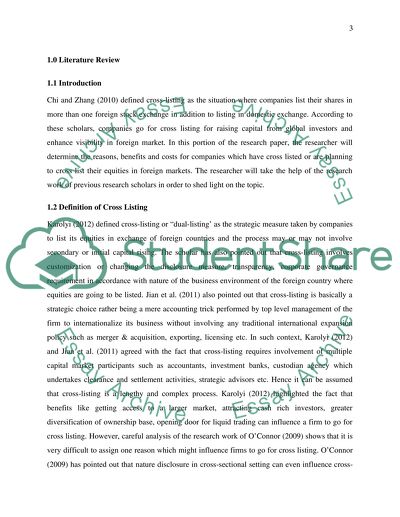Cite this document
(“Cross Listing Literature review Example | Topics and Well Written Essays - 1250 words”, n.d.)
Cross Listing Literature review Example | Topics and Well Written Essays - 1250 words. Retrieved from https://studentshare.org/finance-accounting/1480766-cross-listing
Cross Listing Literature review Example | Topics and Well Written Essays - 1250 words. Retrieved from https://studentshare.org/finance-accounting/1480766-cross-listing
(Cross Listing Literature Review Example | Topics and Well Written Essays - 1250 Words)
Cross Listing Literature Review Example | Topics and Well Written Essays - 1250 Words. https://studentshare.org/finance-accounting/1480766-cross-listing.
Cross Listing Literature Review Example | Topics and Well Written Essays - 1250 Words. https://studentshare.org/finance-accounting/1480766-cross-listing.
“Cross Listing Literature Review Example | Topics and Well Written Essays - 1250 Words”, n.d. https://studentshare.org/finance-accounting/1480766-cross-listing.


